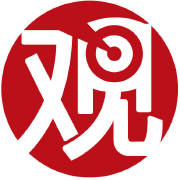Club点评:6月25日,中美研究中心ICAS执行主任、北京对话特约专家洪农,在南华早报发表题为《Legal moves turn South China Sea into a public image battleground》(法律举动将南海变成了公关战场)的评论文章。洪农指出,菲律宾再次利用国际仲裁和申诉作为公关工具,旨在提升自身形象并挑战中国的一贯主张。但是,如果某些国家仅在对自己有利时才援引国际法,它们可能会被指责虚伪。国际法的复杂性和灵活诠释性,使得各国都能够操纵法律论点以符合自身叙述。中国在解决南海争端问题时,会坚持原有的双边磋商,还是引入新的办法?
同日,据报道,菲律宾外交部长马纳罗表示,菲律宾希望与中国就南海问题进行对话,以解决分歧。

最近,中国和菲律宾在南沙群岛仁爱礁的冲突,加剧了南海的紧张局势。自1999年以来,菲律宾通过故意搁浅在那里的二战时服役的坦克登陆舰“马德雷山号”(BRP Sierra Madre)及驻扎其上的一小支海军陆战队员,维持着在该海域的存在感,以及对该地区的领土主张。
中国用“九段线”来申明对该岛礁的主权,并曾采取行动阻止菲律宾将仁爱礁变成军事基地,还试图阻止菲律宾的补给船抵达“马德雷山号”。
菲律宾则对中方的行动提出了外交抗议,并寻求增强自身的军事和后勤能力。菲律宾政府重申了在仁爱礁附近继续活动的决心,还呼吁国际社会给予支持。中国则指责菲律宾故意制造冲突事件以博取更多国际关注和同情。
菲律宾采取的这些行动,使南海局势更加复杂。尽管菲律宾目前没有正式宣布要对中国发起新一轮仲裁听证,但有报道称,这方面的讨论已经开始了。
为了反对其认为的中国的非法行为,菲律宾可能会寻求仲裁。更有甚者,菲律宾或将强调他们担心中国的有关活动可能对海底环境造成的破坏。
6月14日,菲律宾请求大陆架界限委员会(CLCS)—一个根据《联合国海洋法公约》设立的国际机构—承认其大陆架外部界限在西巴拉望地区延伸超过200海里。尽管CLCS没有执法权,但它可以研究各国延伸大陆架主张的技术细节并提供建议。
这一寻求仲裁和向CLCS提交申请并举的做法,反映了菲律宾利用国际法律机制来维护自身主张、并挑战中国在南海的一贯海域主张的战略。
这些法律举动的时机和有效性表明,各国将国际法视为公关工具,让其同时服务于战略和外交目的。这一点在菲律宾与中国之间的南海争端中尤为突出。
这一方法提供了几个潜在优势。首先,许多国家将援引国际法标榜为“基于规则的国际秩序”的拥护者,从而获得国际社会的支持和同情。对于菲律宾来说,使用《联合国海洋法公约》来框定其在南海的主张可以增强自己的道德和法律站位。
菲律宾将自己描绘成在世界舞台上遵纪守法、负责任的形象,从而加强自己在谈判中的立场。同时,它对于中国“霸凌”行为和所谓环境破坏活动的“南海行为叙事”,可以在其国内外听众中引起强烈共鸣。这提升了菲律宾领导人的形象,让他们看上去是敢于挑战一个强国的“勇者”。
当前争端的核心法律问题围绕条约法(《联合国海洋法公约》)以及国际习惯法的历史权利之间的关系;菲律宾强调前者,而中国立场基于后者。然而,有时国际社会对中国的立场充耳不闻。
其次,有一种观点认为,国际法为较小或力量较弱的国家提供了一个挑战更强大对手的平台。通过强调其坚持原则和国际准则,菲律宾旨在抵消中国的经济和军事力量优势。2016年有利于菲利宾的仲裁庭裁决似乎传递了这样一个信息:法律诉讼可以把小国的声音放大。
这种观点还认为,中国退出仲裁程序的决定,影响了其合法海洋主张的正当性。因此,中国被描绘成了一个试图对小国施加军事和经济压力的大国。
此外,战略性地利用国际法可以影响国际舆论并左右其他国家的外交政策。通过强调中国不遵守国际裁决,菲律宾正在影响全球舆论,并可能在鼓励其他国家支持其立场,从而在外交上孤立中国。
然而,菲律宾真的在追求法律结果吗?菲律宾向CLCS提交的程序无可争议。任何签订了《联合国海洋法公约》的沿海国家都有权向CLCS提交申请。同样,中国在6月18日向联合国秘书长提交了一份照会,提出,任何关于南海争议水域的提交都不应被考虑。

 照会内容 图源:互联网
照会内容 图源:互联网其实,将国际法作为公关工具也有其局限性。如果某些国家仅在对自己有利时才援引国际法,它们可能会被指责虚伪。国际法的复杂性和灵活诠释性,使得各国能够操纵法律论点以符合自身叙述。
此外,国际法通常缺乏强有力的执行机制,这意味着在法庭或仲裁庭上的胜利,可能不会转化为现实中的改变。2016年的仲裁结果未能对解决菲律宾和中国之间的主要矛盾做出积极贡献,反而进一步加剧了两国间的紧张局势。那么,中国在解决南海争端问题时,会坚持原有的双边磋商,还是引入新的办法?
(翻译:王奕涵 核译:韩桦)
英文原文:
Recent clashes between China and the Philippines over the Second Thomas Shoal have heightened tensions in the South China Sea. The Philippines has maintained a presence there since 1999 by stationing a small contingent of marines on the BRP Sierra Madre, a deliberately grounded World War II-era ship symbolising its claims over the area.
China also claims the shoal based on its nine-dash line. It has taken actions to prevent the Philippines from turning the shoal into a military base and attempted to prevent resupply boats from the Philippines from reaching the Sierra Madre.
In response to Chinese actions, the Philippines has lodged diplomatic protests and sought to bolster its military and logistical capabilities. The Philippine government has reiterated its commitment to maintaining its presence at Second Thomas Shoal and has called for international support. Meanwhile, China has accused the Philippines of staging incidents to gain more international attention and sympathy.
The Philippines has taken further actions that add to the complexity of the South China Sea status quo. While there haven’t been any official announcements regarding initiating new arbitration hearings against China, reports suggest there have been discussions to that end.
The Philippines might seek arbitration to challenge specific Chinese actions it sees as illegal. Additionally, the Philippines might aim to highlight concerns about potential environmental damage from Chinese activities on the seabed.
On June 14, the Philippines requested that the Commission on the Limits of the Continental Shelf (CLCS) – an international body established under the United Nations Convention on the Law of the Sea (Unclos) – recognise that the outer limits of its continental shelf extended beyond 200 nautical miles in the West Palawan region. Although the CLCS lacks enforcement power, it provides recommendations by reviewing the technical details of a country’s extended continental shelf claims.
This dual approach of seeking arbitration and submitting claims to the CLCS reflects the Philippines’ strategy of using international legal mechanisms to uphold its claims and challenge China’s maritime claims in the South China Sea.
However, the timing and effectiveness of these legal actions suggest countries see international law as a tool for public image campaigns, serving both strategic and diplomatic purposes. This is particularly evident in the South China Sea dispute between the Philippines and China.
This approach offers several potential advantages. First, invoking international law lets countries position themselves as adherents to a rules-based international order, garnering support and sympathy from the global community. For the Philippines, framing its claims in the South China Sea through Unclos enhances its moral and legal standing.
The Philippines portrays itself as a law-abiding and responsible actor on the world stage, strengthening its negotiating position. The narratives of China’s bullying behaviour and environmentally damaging activities resonate strongly with domestic and international audiences. This boosts the image of Filipino leaders as courageous individuals willing to confront a powerful nation.
The central legal issue revolves around the relationship between Unclos as treaty law, which the Philippines emphasises, and historic rights as customary international law, upon which China bases its claims. However, China’s side of the story can sometimes go unheard within the international community.
Second, there is the notion that international law provides smaller or less powerful countries with a platform to challenge larger, more powerful adversaries. By emphasising its commitment to principles and international norms, the Philippines aims to offset China’s economic and military strength. The 2016 arbitration panel ruling in the Philippines’ favour seemed to send a message how legal recourse can amplify the voice of smaller nations.
Meanwhile, China finds itself in a weakened position before the international community. Its decision to walk away from the arbitration proceedings undermined the legitimacy of its legal maritime claims. Consequently, China is portrayed as a major state seeking to exert its military and economic power over smaller states.
Furthermore, the strategic use of international law can shape international opinion and influence foreign policy decisions of other states. By highlighting China’s non-compliance with international rulings, the Philippines is swaying global opinion and potentially encouraging other nations to support its stance, isolating China diplomatically.
However, is the Philippines truly pursuing a legal outcome? The procedures of the Philippines’ submission to the CLCS are beyond question. Any coastal state that has ratified Unclos has the right to submit applications to the CLCS. Similarly, China sent a note verbale on June 18 to the United Nations secretary general, arguing that any submissions regarding the disputed waters in the South China Sea should not be considered.
Meanwhile, using international law as a tool for public image campaigns has its limitations. Countries could be accused of hypocrisy if they invoke international law only when it is convenient. The complexity and interpretative nature of international law allow countries to manipulate legal arguments to fit their narratives.
Additionally, international law often lacks robust enforcement mechanisms, meaning victories in courts or tribunals might not translate into real change on the ground. The outcome of the 2016 arbitration did not make a meaningful contribution to resolving the main issues between the Philippines and China but instead further escalated tensions.
Another implication is whether China will turn to international litigation or arbitration to pursue its maritime claims. Will China’s conventional approach of bilateral negotiations and consultations remain its preferred method for settling interstate disputes?
Alternatively, will it come to accept that third-party dispute resolution has a pivotal role to play in resolving issues with neighbouring countries? The Philippines’ legal manoeuvring could prompt China to re-evaluate its usual approach to resolving maritime disputes in the South China Sea.

4000520066 欢迎批评指正
All Rights Reserved 新浪公司 版权所有

